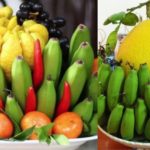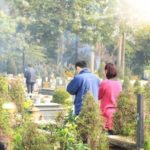The Qingming Festival, or Tomb-Sweeping Day, is one of 24 solar terms recognized by Eastern cultures. It is the 5th solar term, occurring 45 days after the spring equinox and 105 days after the winter solstice. This festival marks a time of clear and cool weather, prompting Vietnamese families to honor and remember their departed loved ones. They visit cemeteries, carrying tools to tend to their ancestors’ graves.
Qingming Festival is a bustling event, with children also joining to learn about their ancestral graves and traditional rituals. To understand more about the offerings for the 2024 Qingming Festival, both at home and at the cemetery, continue reading!
1. What preparations are needed for Qingming Festival offerings?
Offerings at Home
The Qingming Festival offerings are typically not elaborate. For a non-vegetarian offering, prepare dishes such as , , , and more. Other items that complete the offerings include , fresh flowers, betel and areca nuts, and joss paper.
Buddhist families may opt for . If your family does not prepare a feast, you can still offer fresh fruits, , a small amount of , and to express gratitude to your ancestors.
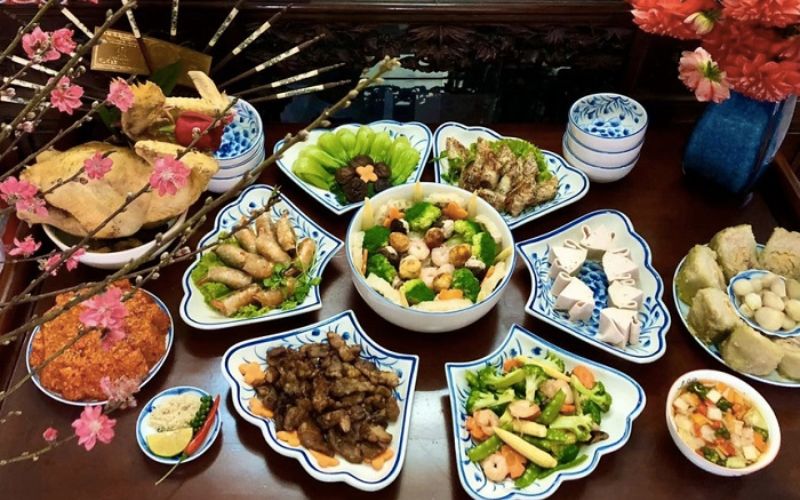 Qingming Festival Offerings at Home
Qingming Festival Offerings at Home
Offerings at the Cemetery
The offerings at the cemetery also include vegetarian and non-vegetarian options. Essential items are incense, candles, , , clean water, betel and areca nuts, and joss paper and money.
For vegetarian offerings, prepare dishes like , banana cakes, pastries, bottled water, , , , and .
The non-vegetarian option includes additional items such as alcohol, , , and boiled or sliced pork. If there are multiple graves with incense burners, light incense for each one. The offerings on the table can be shared.
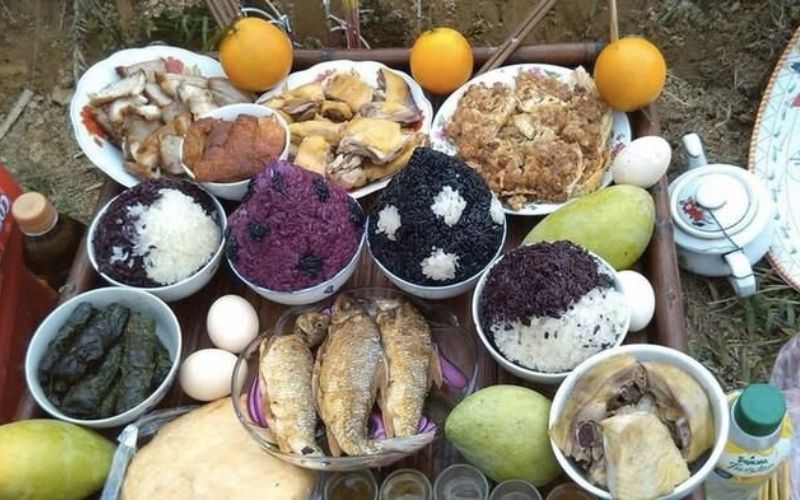 Qingming Festival Offerings at the Cemetery
Qingming Festival Offerings at the Cemetery
2. How to perform the Qingming Festival offerings according to traditional customs
Offerings at Home
Before making offerings at home, clean and tidy your house and ancestral altar. Once the offerings are prepared, dress respectfully and place them on the altar. Light incense, bow to your ancestors, and recite the worship text. After a stick of incense burns out, you can burn the joss paper and receive the blessings.
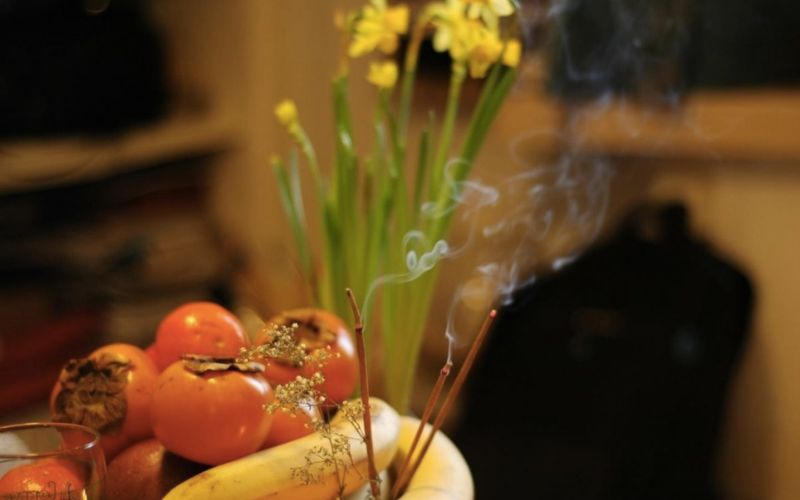 How to Perform Qingming Festival Offerings at Home
How to Perform Qingming Festival Offerings at Home
Offerings at the Cemetery
On Qingming Festival, people bring spades and hoes to tend to their ancestors’ graves, filling them to make them fuller and weeding out wild plants. This practice keeps away wild animals like snakes and mice, and also shows respect to the deceased. After cleaning the graves, place the offerings at a common spot to perform the rituals.
To begin, light incense and candles and recite the Qingming Festival worship text. When about two-thirds of the incense has burned, express gratitude, burn the joss paper, and bring blessings back home to offer to the household and ancestral gods. If you write the worship text on paper, burn it along with a joss paper after reading.
Additionally, light incense at nearby unattended graves to show respect and share your blessings.
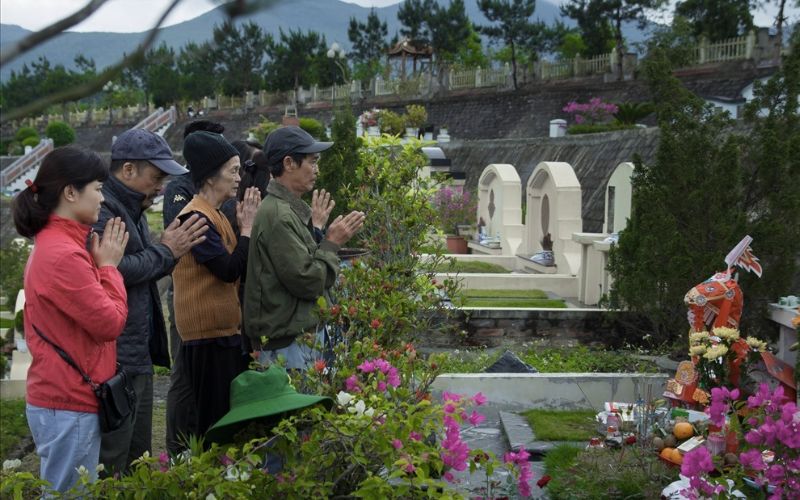 How to Perform Qingming Festival Offerings at the Cemetery
How to Perform Qingming Festival Offerings at the Cemetery
3. Worship texts for Qingming Festival offerings at home and the cemetery
Worship Text for Offerings at Home
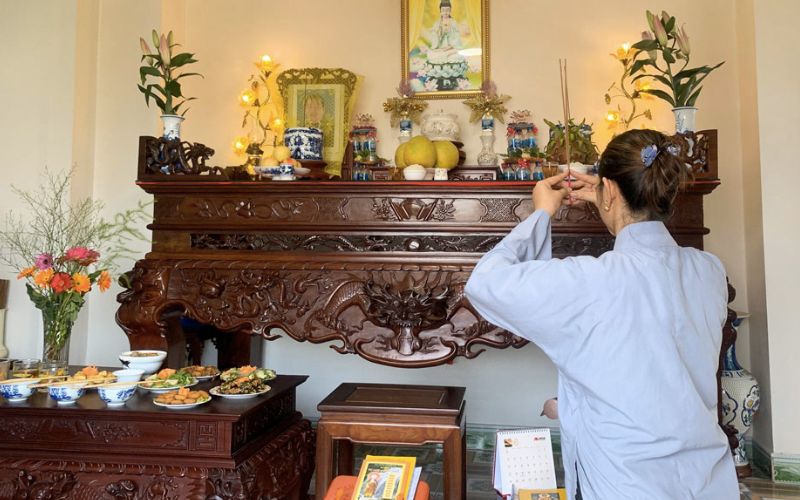 Worship Text for Qingming Festival Offerings at Home
Worship Text for Qingming Festival Offerings at Home
Nam mo A Di Da Phat! (Recite 3 times, bow 3 times)
We bow to the nine directions of the sky and the ten directions of the Buddha.
We bow to our ancestors and the entire family lineage on both sides…
We bow to the female and male guardians, the elderly, and the young at home.
Today is the 26th of February in the year of the Yin Metal Ox.
I, whose name is…, age…, born in …, district…, province…, along with my entire family, bow before the ancestral altar.
We invite the Earth God and the Kitchen God to witness this ceremony.
We offer silver, betel, alcohol, tea, joss paper, flowers, fruits, and other items with sincerity on this Qingming Festival. We invite the spirits of our ancestors, the deceased, the elderly, our parents, uncles, aunts, brothers, and sisters to witness and enjoy these offerings.
We sincerely and respectfully ask our ancestors and the female and male guardians to protect and guide our family, keeping us safe and prosperous. May the three summer months and nine winter months be pleasant and fruitful. Bring good fortune and take away misfortune, so that our family’s endeavors are blessed with smooth sailing and good luck.
We respectfully offer these silver and other items, asking our ancestors to witness and bless our entire family.
Nam mo A Di Da Phat! (Recite 3 times, bow 3 times)
Worship Text for Offerings at the Cemetery
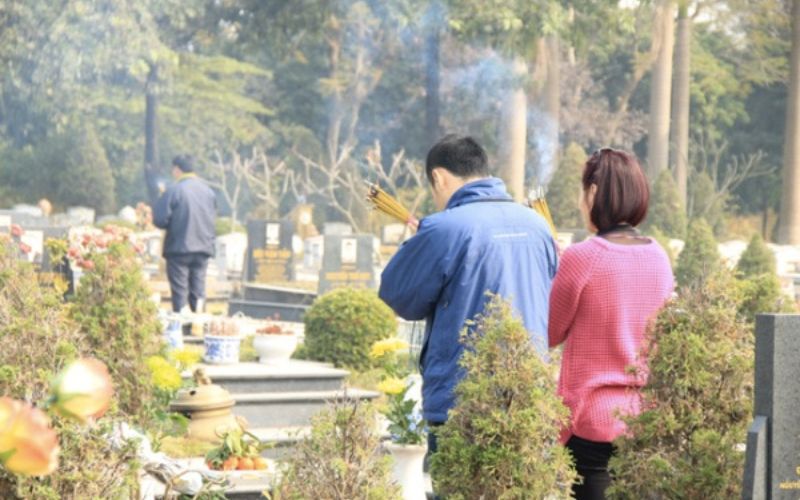 Worship Text for Qingming Festival Offerings at the Cemetery
Worship Text for Qingming Festival Offerings at the Cemetery
Nam mo A Di Da Phat! (Recite 3 times, bow 3 times)
We bow to the nine directions of the sky and the ten directions of the Buddha.
We respectfully bow to the spirits of: (list the names of the deceased)
Today is the (date in lunar calendar), and we observe the Qingming Festival. We, the descendants of…, residing at …, ward…, district…, city…, are grateful for your blessings. On this occasion, we prepare offerings of betel, areca nuts, incense, flowers, fruits, tea, and other items. We invite your spirits to enjoy these offerings.
Nam mo A Di Da Phat! (Recite 3 times, bow 3 times)
Reference: at home and the cemetery for 2024
4. Notes on Qingming Festival offerings
During the Qingming Festival offerings, the eldest son, grandson, or the person in charge of the family’s ancestral worship should perform the rituals. When visiting the cemetery, do not hire someone to carry heavy items; instead, ask family members to help. Maintain a solemn atmosphere during the rituals, refraining from loud conversations or playful behavior. Show respect to the deceased by conducting the rituals seriously and respectfully.
Pregnant women are advised against visiting the cemetery due to potential health risks. Those who attend should move with care and avoid disturbing the surrounding environment and landscape.
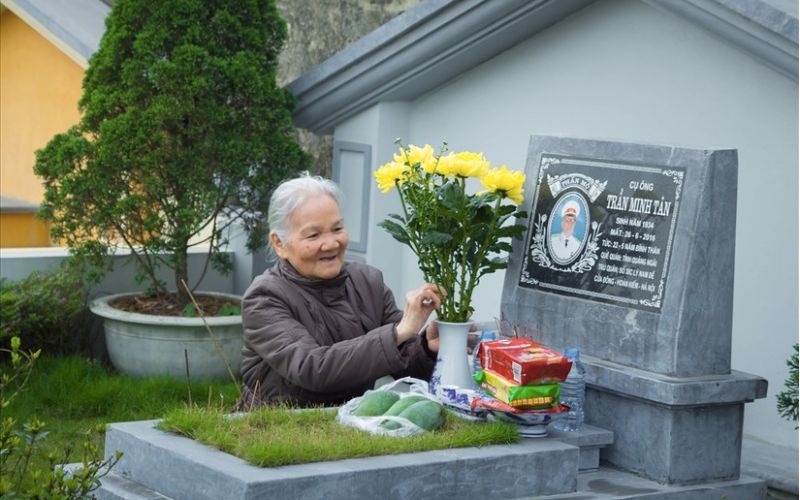 Notes on Qingming Festival Offerings
Notes on Qingming Festival Offerings
Further reading:
We have introduced the offerings for the 2024 Qingming Festival, both at home and at the cemetery. We hope this information assists you in preparing for this meaningful event. Thank you for reading!
Understanding the Significance of the Autumn Equinox in 2023
On September 23rd, 2023, people around the world will gather to celebrate the Autumn Equinox. This midpoint of the season is an important date in many cultures, being marked in both ancient Chinese calendars as well as numerous other traditions. To honor the Equinox, festive celebrations involving music, feasts, and more are held. Embrace the spirit of the season by learning about the Autumn Equinox and its significance across different cultures here!



























